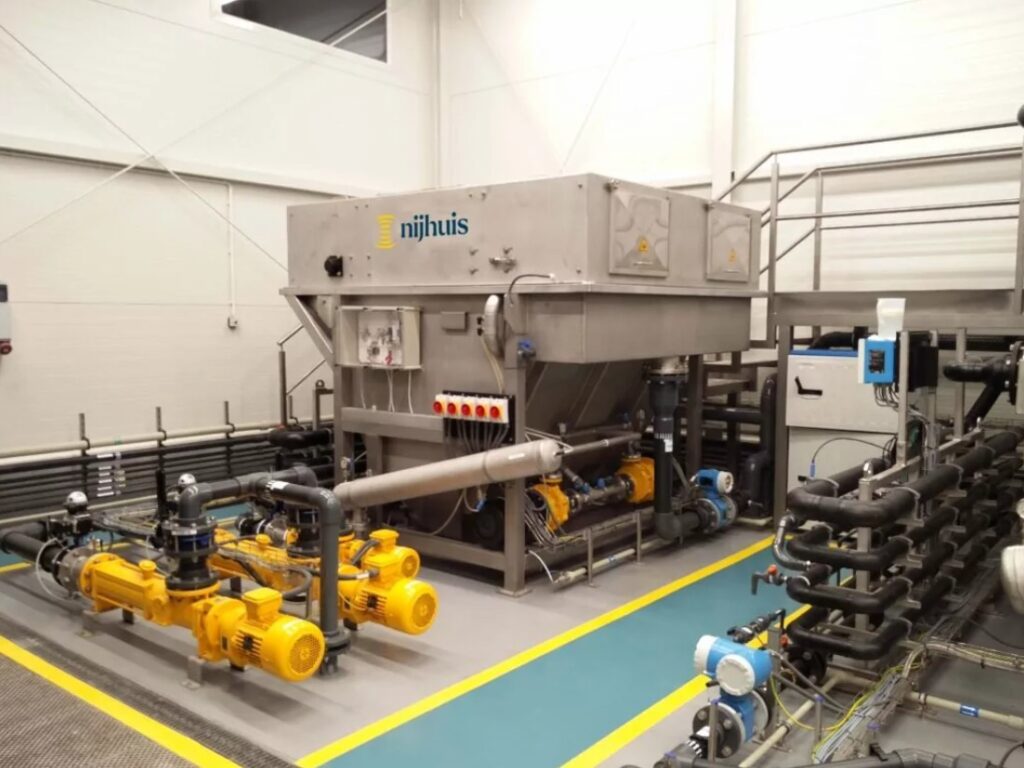
In Georgia, an important part of wastewater management is often overlooked — sludge treatment, the inefficient execution of which can pose significant environmental risks.
At the same time, modern modular solutions now make it possible to build safe and circular systems for effective sludge processing. The Dutch company Nijhuis Saur Industries (NSI) offers innovative and cost-efficient solutions designed to optimize every stage of sludge treatment — from thickening and dewatering to its sustainable utilization.
Challenges in Sludge Treatment
Wastewater treatment generates sludge — a byproduct rich in organic and inorganic substances. Its efficient management is crucial for minimizing environmental impact and maintaining the overall performance of wastewater treatment facilities. Without proper treatment, sludge can lead to environmental pollution caused by pathogens, nutrients, and microcontaminants.
Modern sludge treatment technologies focus on reducing sludge volume and minimizing its environmental footprint — all while meeting increasingly strict regulatory requirements.
What’s Efficient Sludge Treatment
The first stage of sludge treatment involves assessment and segregation — measuring flow rates, dry solids, volatile substances, fats, and metals in the sludge.
During the initial thickening phase, solid-liquid separation methods (such as Dissolved Air Flotation – DAF) are commonly used to thicken the sludge and reduce the load on downstream processes.
The next step focuses on sludge dewatering, aimed at reducing transport and disposal costs. For this, NSI provides technologies such as screw presses, decanter centrifuges, or drum filters for handling excess sludge.
Finally, the process moves to chemical and operational optimization. Intelligent dosing and automation reduce treatment costs while improving system stability. NSI’s smart technologies adjust reagent dosing in real time according to wastewater quality, minimizing consumption and maintaining high performance.
NSI Solutions for Each Stage
NSI’s equipment supports every step of sludge treatment and disposal. During the thickening and primary separation stage, the high-speed DAF system efficiently separates suspended solids and fats from the sludge — making it ideal for operations with variable load volumes.
When it comes to dewatering, traditional sludge dewatering systems are often energy-intensive and require frequent maintenance. Fluctuations in sludge characteristics can affect both performance and consistency. In addition, stricter environmental regulations now demand lower emissions, less noise, and more resource-efficient technologies.
The NSI screw press stands out for its low energy consumption, minimal noise, and reduced maintenance needs. By producing drier sludge, it significantly reduces transportation and landfill costs. Equipped with a hose-type flocculator, it automatically adjusts in real time to variations in sludge properties, ensuring continuous high performance — even when the incoming sludge composition or thickness changes. This eliminates the need for extra chemical dosing or manual intervention.
NSI also manufactures decanter centrifuges, which deliver high-efficiency dewatering with minimal operator involvement, making them ideal for variable sludge types. These units separate digestate into solid and liquid fractions — the solid part can be composted, dried, or incinerated, while the liquid fraction proceeds to the next stage of treatment.
Digestate Treatment
The anaerobic digestion of sludge produces digestate, a byproduct rich in organic matter and nutrients. However, managing it sustainably and cost-effectively can be a complex challenge.
High concentrations of nitrogen and phosphorus in digestate can cause soil nutrient imbalance and water pollution if not properly treated before reuse.
Ultrafiltration and reverse osmosis systems remove remaining nutrients, organic matter, and microcontaminants from water. For instance, the DEEPEST system, a modular titanium membrane technology, is designed for the treatment and reuse of complex wastewater streams and digestate derived from organic waste.
Dewatering and separation systems help reduce sludge volume, lowering transportation and storage costs. By recovering nitrogen and phosphorus, operators can minimize the environmental impact of wastewater and repurpose the remaining sludge as commercial fertilizer or agricultural input.
Finally, chemical dosing optimization ensures stable performance in real time while reducing reagent consumption — particularly useful when influent loads fluctuate daily.
Properly planned sludge treatment not only enhances process sustainability but also ensures regulatory compliance. Nijhuis Saur Industries (NSI) provides solutions that combine innovative technologies with modular, easy-to-operate designs. Since 2022, VORTEX Water Engineering has been representing NSI in Georgia, helping local companies reduce their wastewater’s environmental impact and achieve compliance with environmental regulations.